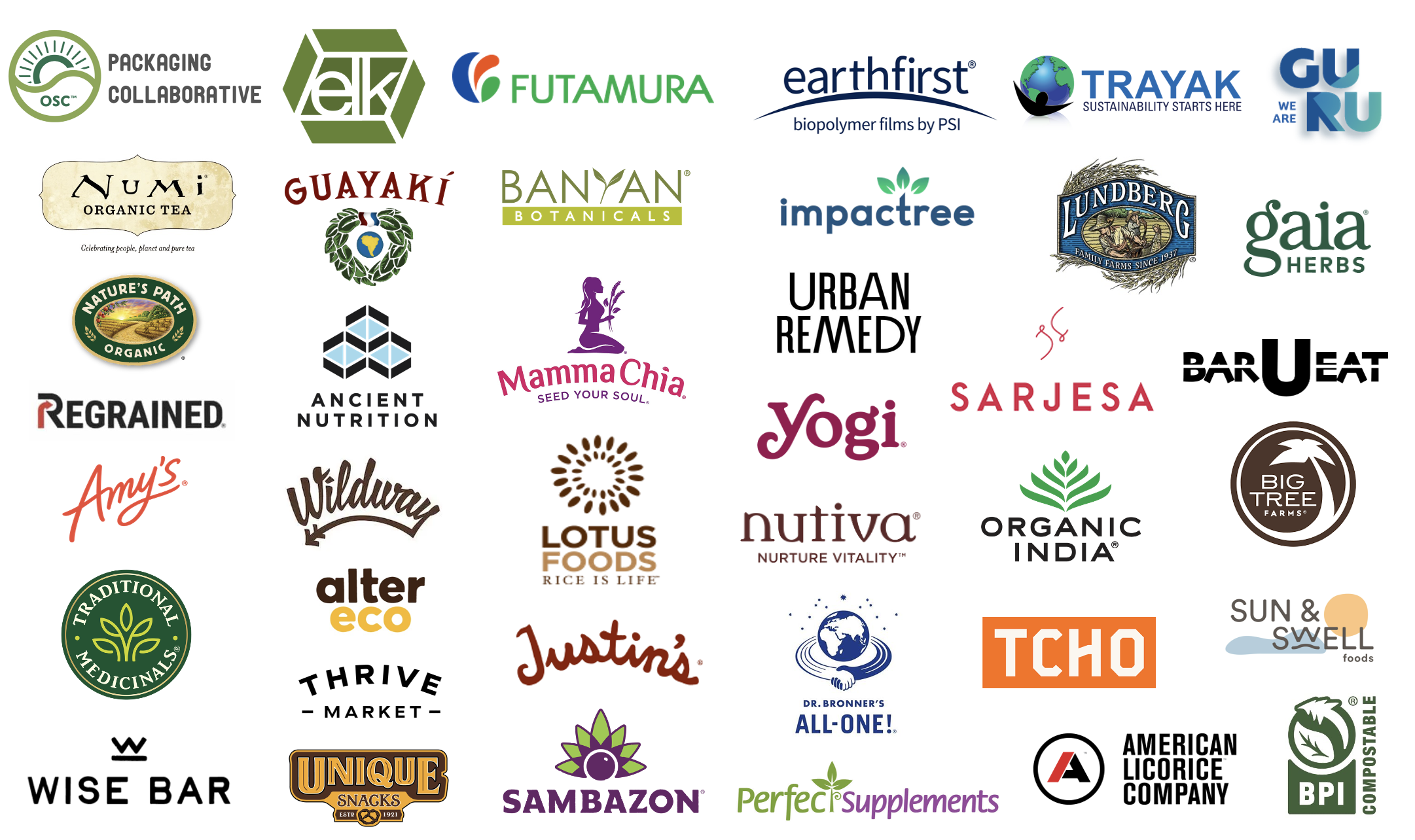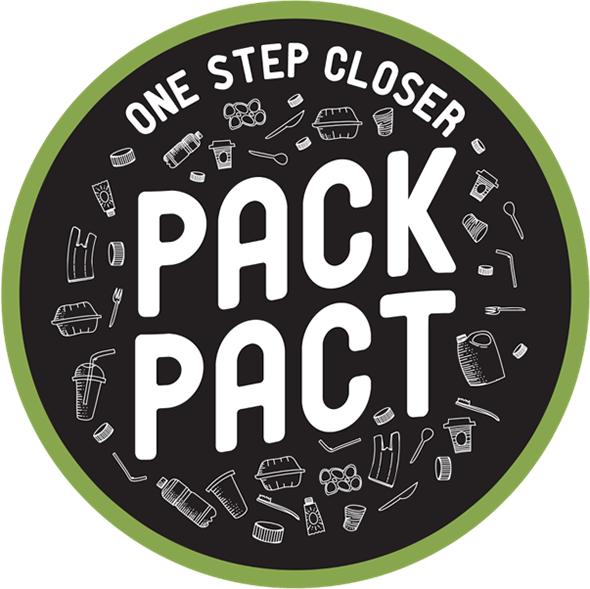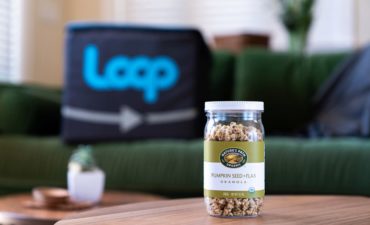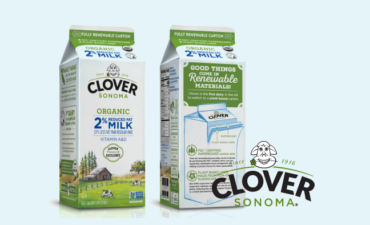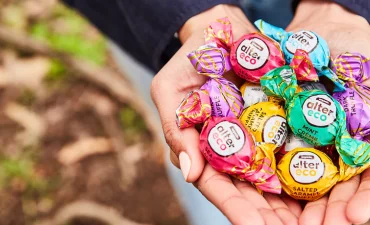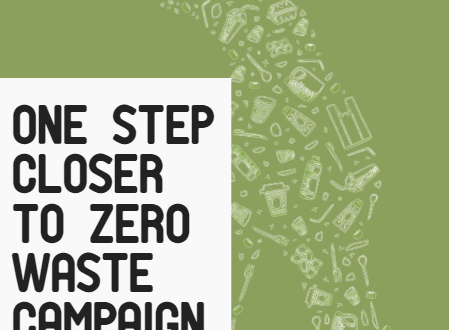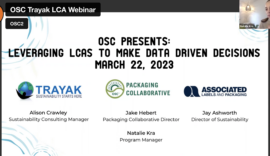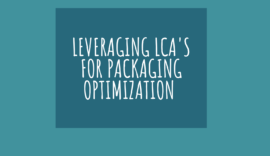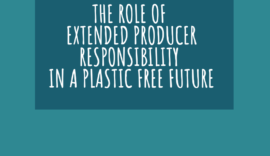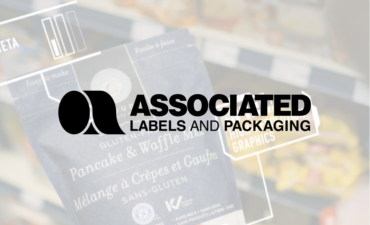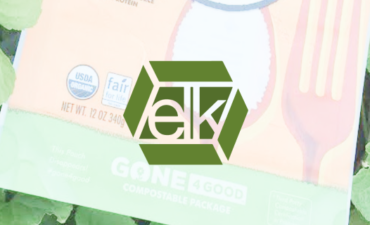Home
Get Started:
Overview
Our Philosophy. Our Mission.One Step Closer (OSC) formed the Packaging Collaborative to remove petroleum-based plastics from landfills, oceans and our natural environment and replace them with renewable, compostable alternatives. We see the value of a circular materials economy as a way to reduce the proliferation of plastics and to address our carbon footprint. In fact, recent studies have indicated that a circular economy is a $4.5 trillion dollar opportunity—meaning we have a unique opportunity to stimulate economic growth, turn waste into wealth, and differentiate our brands through the lens of sustainability.
Great things happen when we work together
Nearly every company is trying to accomplish a similar goal, and by working together, we have the chance to shift entire industries towards triple bottom line packaging solutions. Our goal is to create an industry movement of diverse stakeholders across the packaging value chain to develop systems level solutions that deliver on the triple bottom line: people, planet, and profit.
That is why we developed this Innovation Portal – to provide stakeholders with the resources they need to make strategic, informed packaging decisions, and help you move more quickly and with intention on your packaging journey. This is one small step for brands, and one giant leap for brand-kind.
Industry Milestones
In pursuit of progressSustainable packaging is not a new challenge for the CPG industry. Over the years, significant progress has been made as a result of collaborative efforts between stakeholders across the value chain:
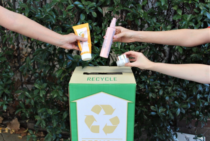
Leading companies around the world work with TerraCycle to handle and repurpose their difficult-to-recycle products and materials, ultimately giving them a second or third life. Since 2001, the program has diverted millions of pounds of valuable resources from landfills. They now operate in over 21 countries worldwide with no intention of slowing down.

The Recycling Partnership unites stakeholders across a multiple of sectors, issues and cultures, ultimately investing in communities and systems in order to protect resources, empower sustainable action and unlock the untapped opportunity of our failing recycling systems. The organization drives and scales sustainable solutions through grants, tools, technical assistance, partnerships, and research.
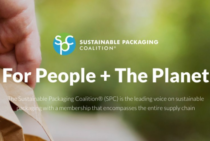
As a leading voice of sustainable packaging, SPC offers a plethora of tools, applications and services to help companies and organizations take meaningful action towards achieving their sustainable packaging goals. The membership-based coalition unites businesses, educational institutions, and government agencies to collectively strengthen and advance the business case for more sustainable packaging.

OSC launched the Packaging Collaborative to remove petroleum-based plastics from landfills, oceans and our natural environment and replace them with renewable, compostable alternatives. Since our first Packaging Collaborative meeting at Expo West 2013, we have continued to make progress on sustainable packaging solutions and believe the best way to drive this critically important sustainability initiative is to create an open, collaborative environment.

This New York based investment firm provides equity and project finance to scale products, services and infrastructure at the forefront of the development of the circular economy. This firm is paving the way to a more circular road and proving that capitalism can coexist with positive social and environmental impact.

Loop was created as a waste-free delivery alternative in 2019. They remove cardboard boxes, bubble wrap and ice packs from the equation, replacing all of that packaging waste with a neat and tidy reusable Loop tote. Since its inception, Loop has partnered with dozens of brands to create zero-waste versions of their essential products – ranging from ice cream and nut butter to dish soap and disinfectant wipes. Loop is currently available in the United Kingdom, France, Canada, Ulta Beauty, Japan, and the US, and has plan to expand into Australia this year.
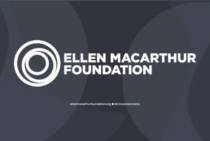
The Ellen MacArthur Foundation is one of the most influential voices of the circular economy. This year, they will be hosting and participating in a series of events at COP26 to demonstrate how and why a circular economy is a critical solution in tackling our global climate challenges – particularly as they relate to waste. According to the Ellen MacArthur Foundation, ‘45% of global greenhouse gas emissions come from the way we make and use products and food.’ Put another way, if we have any hope of reaching the Paris Agreement targets, we’ll need to redesign our global economy by eliminating waste and pollution and moving away from our single-use mindset by circulating more products and materials.

The US Plastics Pact released a Roadmap in 2021 illustrating how it’s signatories will approach their 2025 climate targets through specific actions, responsibilities, and interim timeframes in order to realize meaningful, targeted outcomes for a circular economy for plastic packaging. Those four climate targets include: defining a list of packaging that is problematic or unnecessary by 2021 and take measures to eliminate them by 2025; 100% of plastic packaging will be reusable, recyclable, or compostable by 2025; recycle or compost 50% of plastic packaging by 2025, and use an average of 30% recycled content or responsibly-sourced, biobased content by 2025.
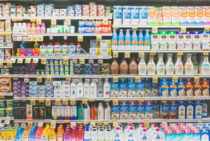
The world’s 25-largest CPG companies have made sustainable packaging commitments ranging from increasing the recyclability and reusability of their materials, to reducing material use altogether. 80% of these companies are working toward fully recyclable packaging for all of their products by 2030 at the latest, and nine of those companies – including PepsiCo, Kellogg and Molson Coors – have committed to integrating compostable packaging into their product portfolios by 2030.
Packaging Collaborative Members
